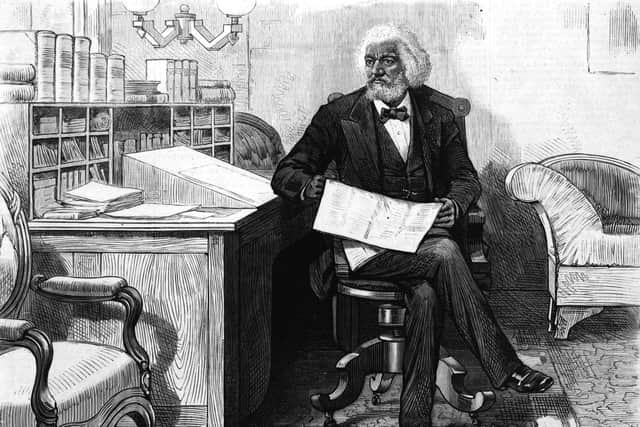Robert Burns and slavery: National Galleries of Scotland should hangs its head in shame for besmirching poet loved by abolitionist Frederick Douglass – Kenny MacAskill
A reported plan by the National Galleries of Scotland to reference the heinous trade in text beside a famous portrait of Robert Burns was rightly described as “historically illiterate” by the learned academic. The proposal, which hopefully will be buried after the outcry, is not only wrong but a calumny against a great man, despite his many personal failings.
Even Dr Stephen Mullen, who has researched Scotland’s role in slavery, which does remain far more significant than we’d like to accept, was minded to state on social media just no, he didn’t go to Jamaica to take up a job on a slave plantation, so that’s the end of it.
Advertisement
Hide AdAdvertisement
Hide AdOf course, Burns did consider going but only, as Sir Tom Devine stated, because financial ruin forced him to consider it. The success of his first anthology brought respite and stay he did. But to then tarnish him in this way is nonsensical. Are thoughts from long ago now a crime? This isn’t PC nonsense, it’s libel.


That’s not to deny Scotland’s involvement in slavery. Grand houses across our land, and not just in the Highlands, confirm the wealth that was made. It wasn’t just the lords and ladies, as many poorer Scots did as Burns considered, explaining the huge Scottish contingents in Jamaica and Guyana. The nation itself was enriched through the capital obtained by many, even if for most, including Burns, the benefit would have been through an early form of trickledown economics.
But to besmirch Burns with it is absurd and disgraceful. Maybe the Galleries should look at how the wealth of many of their benefactors over the years was obtained.
They could perhaps instead reference how arguably the world’s two greatest abolitionists, Abraham Lincoln and Frederick Douglass, were devotees of the great man. The latter even visited Burns Cottage and met his surviving sister decades after the poet’s death, when on a speaking tour for his great cause. He went to pay his respects, not berate the man.
The National Galleries should get its facts right and hang its head in shame.
Kenny MacAskill is Alba Party MP for East Lothian
Comments
Want to join the conversation? Please or to comment on this article.
